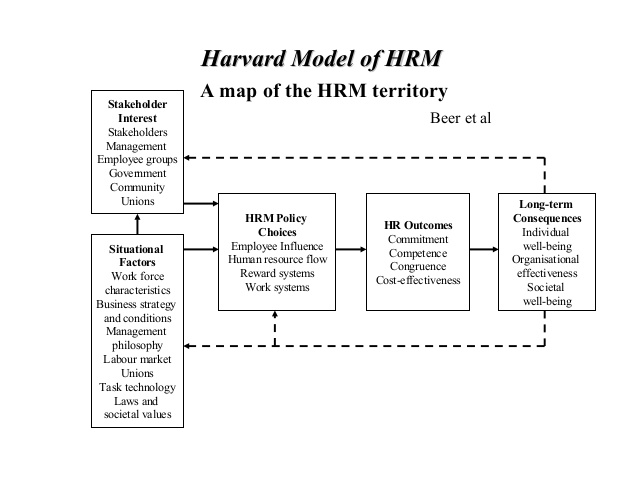
HRM, technology and innovation: notes from the conference
Geschreven door Boudewijn van der Velde | November 10, 2015Today I took a train eastward, traveling from Utrecht to Enschede to join a conference called 'HRM, Technology and Innovation: Back to the Future’ at the University of Twente. It celebrates the Human Resource Management faculty's 25 year anniversary. I had a great day learning and thinking about research and practice, now and in the future. Below you'll find the notes I took during the day.
 Introduction by Peter Paul
Introduction by Peter Paul
Short introduction of the theme; HRM, technology and innovation.
Some of the topics Peter Paul is thinking about:
- Human enhancement instead of human development? For example, it is now possible to stimulate a part of the brain with a device to reduce depression and improve cognitive development!
- The end of job interviews? Analysis of social media could find out if the person is right for the company. Or the other way around: the employee could find the company on the (social) web and figure out how strong the match is.
Keynote HRM, Technology and Innovation: Back to the Future - Prof. Dr. Chris Brewster
Anecdote: Chris’s son has two Facebook pages, one for friends and one for (potential) employers.
Previous and current research
- Beer et al. wrote the first book on HR Management, before that they just did ‘personnel administration’. The Harvard approach or ‘the map of the HRM territory’ is almost 30 years old but still relevant.
- It includes stakeholders, situational factors (or as Chris likes to call it: context), HRM policy choices, HR outcomes and Long-term consequences.
- Chris argues current research lacks focus on stakeholders (especially employees) and long-term consequences.

Two paradigms in HRM research
There are two paradigms for HRM research: the universalistic paradigm and the contextual paradigm:
- Universalistic: management is a science; and you need yes / no experiments; findings should apply to the whole universe (e.g. water boils at 100 degrees celcius).
- Currently, this is how to get published in the important science journals.
- In these journals you’ll find best practices from large American corporations; Chris argues these may not be suitable at all for different sized companies anywhere else in the world.
- 99% of publications follow this paradigm
- Contextual: you assume the world is too complex, no yes/no experiments that have outcomes suitable for ’the universe’.
Employees vs top management
In the past HR tried to balance employees’ and top management’s interests. Now it’s more focused at serving management and HR has forgotten about the employees and their situation (context).
The biggest differentiators in HR practices are:
1. Country
2. Size of company
3. Sector
Current research is too much focused on short term consequences; like firm performance/profits over this quarter or this year.
Technology
- Software is universalistic (context is not important), short term and not taking stakeholders into account.
- There are big differences between companies in terms of tech savyness.
- In practice we see that companies won't use e-HRM a lot; people like to talk to people first. The e-HRM system is a last resort.
- Will we have further job losses? The do-it-yourself economy?
- We’ll see increasing bifurcation of HRM departments; traditional HRM work vs people feeding the machine (filling forms etc).
Proposal for future research:
- Focus on HRM in context.
- Consider all stakeholders (employees, organisation, HRM communities)
- Focus on long-term effects
This means the research will be more difficult but it’s needed (otherwise the field will be irrelevant).
Keynote HRM at University of Twente in 25 years - Prof. Dr. Tanya Bondarouk
Since 1990 Utwente has been doing research in:
- HRM innovation
- HRM technology (e-HRM)
- Innovating HRM functions
Three decades of HRM research have been focused on the links between HRM strategy/policies/practices and organization performance, through employees' abilities/motivation/
- In publications it’s all about making the most complicated models; but what is the societal relevance?
At this moment in time, we’ve established that:
- HRM practices, once well-designed, are associated with firm performance, incl. financial performance (this is a world-wide finding).
- HRM-for-innovation practices enhance innovations in organisation.
- CEO’s understand the need of sustainable innovative HRM systems.
The challenge now is:
- How to resist the focus on short-term performance?
- How to understand the (societal) relevance of HRM research?
Discussions World Cafe
After the keynotes, we had discussions on four themes; HR analytics, WE-nnovation, Smart HRM and Doing HR Management without HR.
HR analytics
Quote from the website: "Inspired by success stories of organizations generating up to $100 million in savings, while at the same time improving the engagement and productivity of employees, advanced HR analytics is becoming mainstream (McKinsey, 2015) and is increasingly considered to be an indispensable tool for HR (Boston Consulting Group, 2014). However, organizations are struggling to let HR Analytics become an organizational reality, where some even suggest that ‘HR and People Analytics’ represents one of the major capability gaps in today’s HR practice (Deloitte, 2015) and most organizations, even large multinationals, lack a clear vision of the future of HR Analytics within their company."
Interesting fact before the discussion: my group found that only a couple of (big) companies in the Netherlands actually do HR analytics (ABN Amro, Shell, Unilever, KLM?).
Main discussion points in workshop:
Which competences are needed for the HR analytics professional?
- Data analyst
- Business analyst
- Strategic HR
- You probably need a team rather than one person for this
Application
- The ultimate goal is to inform (strategic) business decisions.
- We need statistically sound analysis, but also speed and flexibility.
- We see specific HR analytics teams emerging but also enterprise analytics emerging. Will it be merged or will HR remain a specific function?
What drives acceptance among employees?
- Transparency, clearly communicated goals, etc..
- Can employees benefit, use the outcomes/benefits themselves instead of the higher management?
Technology
- Sensors, collect data (health etc.)
- Use data from outside the company
- How they’re developed?
- Developed by companies?
- Developed by tech firms?
WE-nnovation
Quote from the website: "More than a century ago companies were aiming for productivity and efficiency and had one best way of managing employees. Today, however, the most successful companies have shifted their focus towards innovation. Since 100 percent of all innovations come from people in organizations, at all levels, innovative HRM solutions deserve more attention."
Main discussion points in workshop:
What are the conditions for implementing employee driven innovation?
How can HR work beyond the boundaries of HR?
Smart HRM
The HRM field enters smart businesses with convergence of human, digital and high tech dimensions, and it needs to anticipate its own smart future. The foreseeable HRM future may see traditional HRM tasks to be further digitalized or even… robotized.
Main discussion points in workshop:
Digitisation
- As more is automated, what is a job in the future?
- Will we have less jobs?
- Rather than selecting someone for a job; someone manages the value creation process (a-z).
HR Analytics
- The term is a paradox?
- HR people like people not data/analytics
Doing HR management without HR?
Quote from the conference’s website: "Research suggests that traditional HRM activities are gradually moving away from HR advisors and HR managers: HRM responsibilities are devolved to line managers and supervisors, shared service centers anticipate to transition into transformational HRM service provision and organizations are planning to further digitize HRM services in the cloud or by installing mobile apps."
(Unfortunately I missed this discussion)
